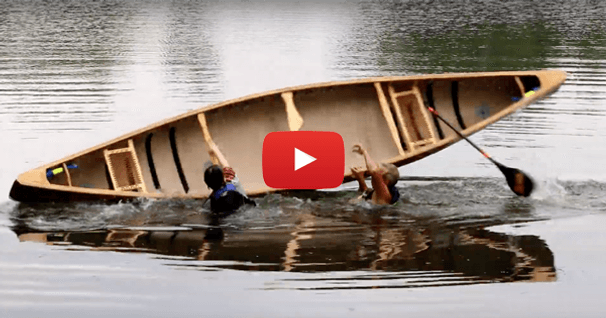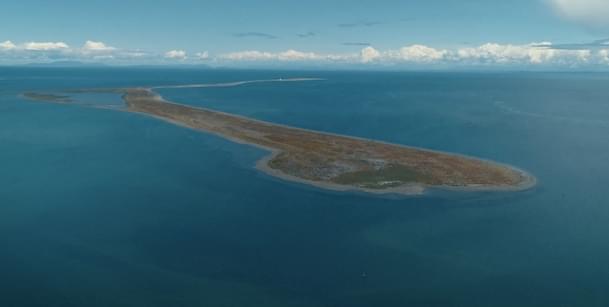What To Do If You Are Overheated After A Paddling This Summer

Summertime paddling is fantastic for all sorts of reasons. Plants are in full bloom, wildlife is out and about, and the days feel like they never turn into night. It’s no wonder why summer is such a popular time for watersports. While it’s an ideal time to kayak, canoe, and SUP board, the summer months are also a time when you are at the highest risk of overheating and suffering from heat-related illnesses.
If you find yourself overheated after paddling this summer, seek shade and a place to rest. Relax in air conditioning and make sure you have plenty of water and electrolytes so you can hydrate while you rest. If you paddle with a buddy make sure you communicate your symptoms and allow them to help you with physical activity. If your symptoms are severe or last many hours, seek medical attention.
Sometimes no matter how careful you are, you can find yourself overheated after paddling on a hot day. The key is knowing the signs that your body is overheating and also knowing what to do to cool yourself off. Below is a list of the symptoms of an overheated body, as well as the top 10 ways to help you cool off and recover after becoming overheated while paddling.
Signs That You Are Overheated After A Summer Paddle
No matter how careful you are, there is still a chance you can become overheated after paddling, especially in the summer. With record heat waves hitting all areas of the world, heat-related illnesses are becoming frighteningly common.
Therefore anyone who paddles in the summertime must be aware of the symptoms of heat-related illness. Below is a list of the most common symptoms of overheating.
Dizziness
Lightheaded
Very Thirsty
Abnormally Weak
Nausea
Headache
Very Sweaty
Highly Irritable
If you have any of these symptoms make sure you stop paddling right away, and then follow the actions listed below to ensure your body safely returns to normal.
10 Actions To Take If You Feel Overheated After Paddling
1. Hydrate And Replenish Electrolytes
If you are experiencing symptoms of a heat-related illness, one of the most important actions you need to take is to rehydrate yourself. Many negative feelings people have when they are overheated, including thirst and headache, are the result of dehydration.
As soon as you notice you are overheated you need to start hydrating yourself. Water is great, but you also might need to replenish some electrolytes. Whether you use a sports drink or a blend of natural juices, you must replenish all the nutrients you have sweated away while paddling in the hot summer sun.
Remember that hydration starts before you paddle. Hydrate before you paddle, while you paddle, and after you finish paddling.
2. Get Out Of The Sun
When you paddle on the water you are completely exposed. If you feel overheated and are still paddling your main objective should be to get to shore and get out of the sun. Head towards a shelter, or if you are far from civilization, find a tree or anywhere that provides shade.
It is cooler in the shade, and when you aren’t exposed to the sun your skin will help you. Take your time in the shade, and allow yourself to rehydrate and regain your strength.
3. Find Air Conditioning
If you are overheating, then you need to do your best to cool your body temperature down. You don’t want to do anything too dramatic, like jump into a pool of ice water, as this will shock your system and potentially cause more issues. Instead, go for something more simple - like good old-fashioned air conditioning.
Find a restaurant or establishment with air conditioning where you can sit and let your body return to equilibrium. If you are feeling thirsty, avoid alcoholic drinks as these can further dehydrate you.
4. Fan Yourself And Sooth Your Skin With A Cool Towel
If you can’t locate an establishment with air conditioning or are in a location with no electricity at all, don’t panic. There are other ways to cool your body down when it is overheated from paddling.
If you have anything that can be used as a fan, use this to cool your face and body down. If you packed a cooler bag, use a towel to dip into the cold water or ice, and pat your skin. This will slowly cool your body down, and it will also feel great.
5. Remove Extra Clothing
If you can find shade, then you should also take off all your extra layers of clothing you use for sun protection. Layers, regardless of how thin they are, are likely inhibiting your body’s ability to cool off.
Once you are out of the sun and done paddling, take off these extra layers. Let the breeze hit your skin, and let your body do its job and cool you naturally while you rest in the shade.
6. Rest A While Before Packing Up And Driving
If you drive to your paddling destination and later find yourself overheated, don’t rush the packing up and exiting process. If you feel weak, lightheaded, or dizzy then the last thing you should do is try and lift a paddling vessel. You also should not risk driving a motor vehicle.
Take some time to cool off, hydrate, and regain your strength.
Eat a snack, relax, and then you can eventually do the manual labor involved in packing up after a day of paddling. Never drive if you feel weak or dizzy, as you are putting your life and other lives at risk.
7. Take A Cool Shower Once You’ve Regained Strength
A cold shower is not something you want to take when your body is at its hottest, as it can shock you and do more harm than good. Instead, take the first steps, like hydrating, getting into the shade, or air conditioning, and then you can take a cool shower.
A cool shower will help rejuvenate you, and will also help alleviate some of the symptoms you have when you are overheated. A cool shower is safer and smarter than jumping in cold water. If you are weak or dizzy you may struggle to swim or even stay afloat.
8. Don’t Engage Any Physical Activity
If you are overheated after paddling the last thing you should do is engage in any physical activity. Physical activity, especially outdoors, will only continue to increase your body temperature.
When your body is weak, or you feel dizzy, then engaging in physical activity will only put you at risk of injury. Take your time to cool down and replenish your body, and then engage in whatever necessary physical activity that you must do.
9. Ask For Help If You Feel Weak
As you know, a kayak doesn’t put itself on your car’s roof. But if you are overheated, you shouldn’t be strapping your board or boat on your roof. When you have any symptoms of being overheated, make sure you ask for help.
If you paddle with a buddy, then inform your buddy of your symptoms and ask him or her for help. This is one of the many perks of paddling with a buddy.
10. Seek Medical Help If Your Symptoms Are Severe Or Persist
Lastly, remember that while overheating is a problem you can often easily resolve on your own, there are other times when you might require medical help. Overheating can lead to heat stroke, which is a severe and potentially life-threatening condition.
If your symptoms are strong and debilitating then you should seek medical attention, and tell whoever you are paddling with. Communicating your symptoms and their severity is crucial. Furthermore, even if you have only moderate symptoms, if they persist for several hours you should also consider seeking professional medical help.
Ways To Prevent You From Overheating While Paddling
Don’t Overdo It On Hot Days
One of the best ways to prevent heat-related illnesses is to take it easy on hot days. Check the weather before you go paddling. If the heat and sun index are forecasted to reach extreme levels then rethink your paddling plan.
You can still paddle on hot days, but you should pack accordingly and consider a short and easy route. Never push yourself too hard. Try paddling early in the morning or later on particularly hot days.
Wear Plenty Of Sun Protection
There might not be any natural shade when you paddle on open water, but you can create your own. Wear plenty of sun protection, especially a wide-brimmed hat. Creating shade and wearing cooling clothing will help prevent you from overheating while paddling this summer.
Take Breaks In The Shade
You must take lots of breaks when you paddle, and this is especially true when you paddle in the summer heat. Taking breaks in the shade allows your body the time to cool down to its normal temperature.
Breaks also give you a chance to listen to your body and hydrate. It is a great way to make sure you have plenty of fluids and nutrients - so take lots of breaks and check in with yourself as you paddle on hot summer days.
Stay Hydrated At All Times
Hydration should always be a main objective, and it’s essential when you kayak or SUP board in the summertime. The best way to stay hydrated is to be fully hydrated when you begin your paddle and to bring more than enough water with you.
Make sure you have water you can access while you paddle. If your water bottle is stored away, you might not get as much water as you need.
Fill Your Cooler Bag With Ice Packs And Refreshments
It’s important to pack hydrating snacks when you paddle, especially on a hot day. This is where a cooler bag and ice packs come in handy. In addition to keeping your snacks cold and at safe temperatures, you can also use ice packs to help cool you off from time to time.
Wrapping Up What To Do When Overheated After Paddling
The summer months are great for paddling. The water is warm, the days are long, and the weather is usually warm and pleasant. There are a lot of benefits to summertime paddling, but there is also a very real risk of overheating. If you find yourself overheated while paddling, head to shore and find shade. Avoid packing up and driving until you have cooled off thoroughly in the shade or air conditioning. Make sure you hydrate, and if your symptoms are severe or persist for hours then seek professional medical help.
What Happens If I Flip?
Related Articles
It’s always a good time to make the choice to bring stand up paddling into your life. It’s a fun,…
When a night-fishing mission goes awry, two kayak anglers learn the importance of staying calm and…
Learn a fast, efficient and stable way to re-enter your canoe after flipping over in deep water.
Dungeness Spit from above, with the New Dungeness Lighthouse in the distance Dungeness…



